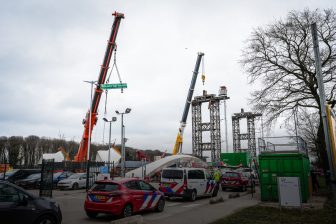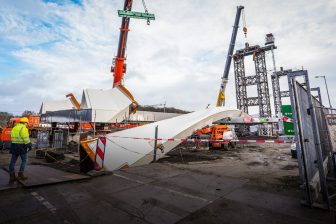Diversify sources, say energy experts
Don’t expect positive changes in Russia
Brussels, Belgium – Europe is likely to be increasingly dependent on gas and oil imports, whose security it is less and less able to guarantee. This situation–especially the heavy reliance on Russian energy sources–needs to be addressed by diversifying the types of energy production within the EU, as well as the sources of foreign imports, said experts at a public hearing 2007-02-28.
For the foreseeable future, the European Union will find itself preoccupied with energy security questions, said experts at the public hearing, held by the EP Foreign Affairs Committee. "The main drive in oil demand is transportation, an area in which it is hard to find a substitute product," said Noé van Hulst, Director of the International Energy Agency in Paris. At the same time, "the EU uses more natural gas per unit of GDP every year," noted Professor Jan Horst Keppler, of Paris-Dauphine University .
"The EU cannot tolerate interruptions in supply, as witnessed recently," said Eneko Landaburu, Director General, External Relations at the European Commission. But although some internal solutions exist to remedy the situation, such as Prof. Keppler’s suggestion to consider talking about raising European energy prices, the main focus of the committee hearing was on the external aspects of the problem. As committee Chairman, and rapporteur Jacek Saryusz-Wolski (EPP-ED, PL) noted, "energy diplomacy will need to play a central role" in considerations of Europe’s energy security.
EU-Russia reciprocity
One of the most pressing problems faced by Europe is that it is increasingly "dependent on investment behaviour in third countries," said Mr van Hulst. This is especially troubling, since one of the main sources of Europe’s energy needs is Russia, where recent restrictions on foreign direct investment (FDI) are "very worrying" and could lead to significant underinvestment in developing gas and oil fields, said Mr Vladimir Milov, President of the Institute of Energy Policy, Moscow.
Mr Milov was quite pessimistic about any positive change in this regard. "It is difficult to expect any liberalisation of the energy market in Russia under the current administration," he claimed. The only way to interest Russia in opening up would be to tie its prospects of investing into the European energy market to similarly permissive rules in Moscow. The EU should unite behind such a requirement of "reciprocity of a legal nature," he advised.
Diversification of sources and technology
What alternatives exist to remedy this threat of over-reliance on Russian energy imports? Zeyno Baran, Director of the Center for Eurasian Policy of the Hudson Institute, Washington, suggested placing more emphasis on alternative supply routes, such as the planned Baku-Tbilisi-Ceyhan (BTC) and Nabucco pipelines. Nevertheless, István Szent-Iványi (ALDE, HU) noted that these projects would only provide an alternative transport route, but not an alternative source of energy. Others, such as Milan Horáček (Greens/EFA, DE), argued that while establishing links with other governments, such as Azerbaijan and Turkmenistan, the EP "shouldn’t forget its goals of furthering democracy and human rights."
The invited experts agreed that what is needed from the upcoming EU Council meeting on 8 and 9 March 2007 is a stronger emphasis on nuclear energy, and less unbridled enthusiasm for renewable energy whose impact and efficiency are uncertain. "The market will not resolve all of our problems," concluded Mr Saryusz-Wolski, stressing that urgent and common action is indispensable.
Procedure: Own-initiativePlenary vote: September 2007, Strasbourg
26/02/2007
Committee on Foreign Affairs
In the Chair: : Jacek SARYUSZ-WOLSKI (EPP-ED, PL)
U las zojuist één van de gratis premium artikelen
Onbeperkt lezen? Profiteer nu van de introductieaanbieding voor € 10,- per maand.
Bent u al abonnee?



